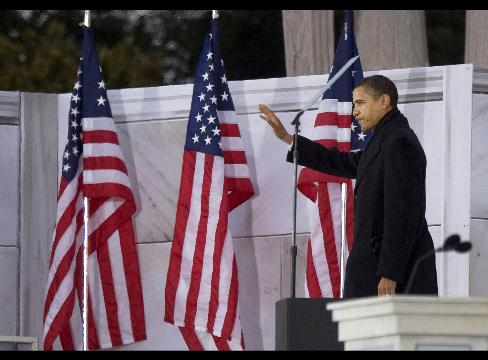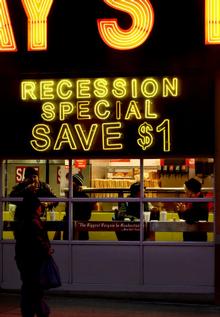Paul Craig Roberts [email him] was Assistant Secretary of the Treasury during President Reagan’s first term. He was Associate Editor of the Wall Street Journal. He has held numerous academic appointments, including the William E. Simon Chair, Center for Strategic and International Studies, Georgetown University, and Senior Research Fellow, Hoover Institution, Stanford University.

“Obama’s economic team consists of the very people who brought on the debt crisis. Now they are going to make it worse.”
Related article: Jim Rogers: Obama administration run by people who caused the latest financial problems (BBC News)
“However, the financial gangsters and their shills that Obama has put in charge of economic policy are thinking only of their own interests. What happens to the American people is not a concern.”
“The unexamined question is: Who is going to finance the next wave of debt?”
“The US budget deficit for fiscal year 2009 already appears to be on a path to $2 trillion, and that is before Obama’s stimulus program. What we are looking at is a $3 trillion budget deficit if Obama’s program is enacted in time to impact the economy this year.”
“…in marked contrast with the approach of the gangsters running US economic policy. The gangsters are using the crisis as an opportunity to steal from taxpayers and to finance their misdeeds and exorbitant salaries with Federal Reserve loans.”
“Their shills among economists and the financial press tell the people that the solution is to fatten up the banks with funds so they will resume lending to an over-indebted public that will then return to the shopping malls.”
By Paul Craig Roberts:
For a picture of the US real estate crisis, imagine New Orleans wrecked by Hurricane Katrina, and before the waters even begin to recede, a second Katrina hits.
The 1,120,000 lost US retail jobs in 2008 are a signal that the second stage of the real estate bust is about to hit the economy. This time it will be commercial real estate — shopping malls, strip malls, warehouses, and office buildings. As businesses close and rents decline, the ability to service the mortgages on the over-built commercial real estate disappears.
The over-building was helped along by the irresponsibly low interest rates, but the main impetus came from the slide of the US saving rate to zero and the rise in household indebtedness. The shrinkage of savings and the increase in debt raised consumer spending to 72 percent of GDP. The proliferation of malls and the warehouses that service them reflect the rise in consumer spending as a share of GDP.
Like the federal government, consumers spent more than they earned and borrowed to cover the difference. Obviously, this could not go on forever, and consumer debt has reached its limit.
Read morePaul Craig Roberts: Another real estate crisis is about to hit








